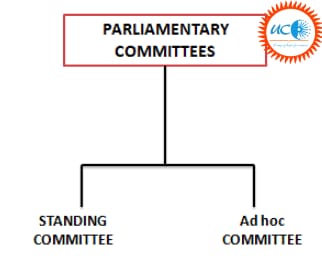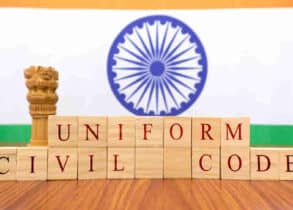Parliamentary Committees
Q. Parliamentary committees play a key role in preserving the foundational pillars of representativeness, responsiveness, and accountability in a parliamentary democracy. In this light, discuss the issue of marginalization of parliamentary committees in recent times. Suggest reforms to strengthen them.
Answer:
The Parliamentary committees are established to study and deal with various matters that cannot be directly handled by the legislature due to their volume. They monitor the functioning of the executive branch and provide the legislature with various policy inputs, playing an important role in Indian democracy.
Role of Parliamentary Committees in Indian democracy:
- Lawmaking: Due to the large volume of legislation, discussion of all the hills in parliament in detail is not possible. Committees do a detailed discussion and analysis on a proposed law, thus enabling that every law is for the benefit of citizens.
- Better informed discussion. Committee allows members for a more meaningful exchange of views as against discussions in open Houses where party positions take precedence. This allows them to make better decisions on policies.
- Executive accountability: Parliamentary committees ensure executive accountability through scrutiny of public spending and various laws. The Public Accounts Committee is concerned with the manner and results of spending public funds. It scrutinizes the accounts and the report of the Comptroller and Auditor-General of India, thereby ensuring accountability of any misspending.
- Help in Economic growth: The Estimates Committee do a detailed examination of the budget estimates. It suggests alternative policies to bring about efficiency and economy in administration.
- Scrutiny of public funds: The Public Accounts Committee scrutinizes the government accounts and the report of the Comptroller and Auditor-General of India. Thus, reduce the chance of misspending and also validate the government’s spending statistics.
Issues of marginalization of parliamentary committees in recent times:
- Fewer Bills Referred: To strengthen the lawmaking process, it is important that all Bills are examined by Standing Committees before passage. This ensures thorough scrutiny of the law. This practice is seen in legislatures of most developed countries. In India, there is no such rule to ensure all Bills are referred to committees. As a convention, the Ministry piloting the Bill recommends the Speaker to refer a Bill to the Standing Committee.
For example, the 14th and 15th. Lok Sabha saw 60 percent and 71 percent of hills referred to committees. This number has dipped sharply to just 27 percent in the 165 Lok Sabha.
- Longer Tenure for Members: The committee system allows a smaller group of legislators to develop technical expertise on a particular subject and ensure better deliberation. In the present format, the members are nominated to a Standing Committee for one year. However, shifting of committees every year defeats this purpose.
- Discussion of committee Reports: The committees make several recommendations in their reports after thorough analysis and feedback from stakeholders. Since these are recommendatory in nature, the executive may not necessarily accept them. Moreover, the reports of the committees are not taken up for discussion in Parliament except for references in certain debates on Bills. Several of the committee’s recommendations are neither implemented nor discussed.
- Research Support: Committees examine issues that are technical in nature. To equip members to gain an in-depth understanding of issues and finally give sound and nuanced recommendations, it is important that quality research is made available to them. Institutional research support will allow committees to serve as expert bodies to examine complex policy issues.
For example, adequate research support also finds mention in the National Commission to Review the Working of the Constitution, 2002 (NCRWC).
- Neglected in The Matters of Great Public Importance: Some of the most momentous Acts of Parliament in recent years such as the overhaul of Article 370 that revoked the special status of Jammu and Kashmir and divided the State into two Union Territories were not processed by any House committee.
Reforms strengthening the Parliamentary Committees:
- Setting Up New Communities: Given the increasing complexity in matters of economy and technological advancement there is a need for setting up new parliamentary committees.
For example, the Standing Committee on National Economy provides analysis of the national economy with resources for advisory expertise, data gathering and research facilities.
- Mandatory Discussion: Major reports of all Committees should be discussed in Parliament especially in cases where there is disagreement between a Committee and the government. The recommendations of the PACs should be accorded greater weight and they must be treated as the “conscience-keepers of the nation in financial matters”.
- Periodic Review: According to the National Commission to Review the Working of the Constitution (NCRWC), DRSCs should be periodically reviewed so that the committees which have outlived their utility can be replaced with new ones.
- Amending Rules of Business: Apart from these, there is need to amend rules of procedure in both Lok Sabha and Rajya Sabha, on that all major Bills should be referred to DRSCs so that DRSCs may finalize the second reading stage in the Committee.
Thus, Parliamentary Committees help with this by providing a forum where members can engage with domain experts and government officials during the course of their study. There is a need to strengthen the parliamentary committees rather than bypassing them for the betterment of parliamentary democracy.






